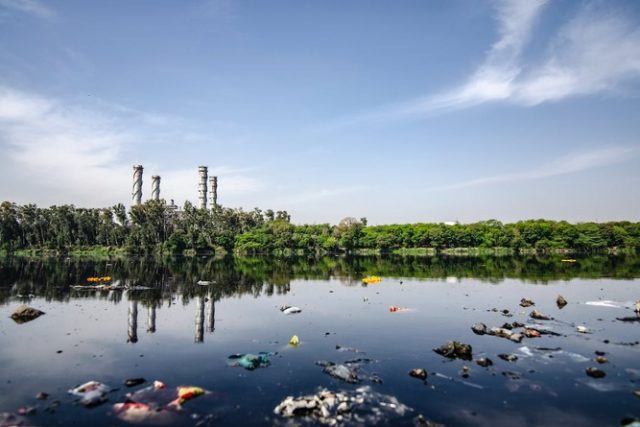In addition to being bad for the environment, waste also hastens the depletion of our natural resources. We can save money, live more sustainably, and protect the environment by lowering the amount of waste we produce on a daily basis. There are numerous strategies to reduce waste in our daily lives, ranging from making small adjustments to our consumption and shopping routines to implementing more environmentally friendly practices like composting, recycling, and upcycling. This entails paying closer attention to what we buy, selecting reusable items over disposable ones, correctly disposing of hazardous waste, and trying to consume less in general.
Waste reduction tips for home
A great method to have a more sustainable lifestyle and benefit the environment is to reduce waste at home. Here are some useful pointers to assist you in minimising waste in your day-to-day life:
- Reusable bags: Use reusable bags instead of plastic ones when you go shopping at the supermarket, farmer’s market, and other places.
- Say goodbye to single-use plastics: Steer clear of plastic straws, drink bottles, and other disposable items. Choose reusable options instead, such as water bottles and stainless steel straws.
- Buy in bulk: Buy in bulk to help cut down on packaging waste. Bulk purchases of foods like grains, nuts, and dried fruits can assist.
- Compost food waste: Start composting your food scraps today to give your garden’s soil a boost of nutrients.
- Use clothes, towels, and napkins: Switch to washable, reusable cloth towels and napkins instead of paper ones by utilising cloth towels and napkins instead.
- Buy refillable containers: Buy items in refillable containers, such as soap, shampoo, and cleaning supplies, to cut down on plastic waste.
- Donate unwanted stuff: Donate unwanted items to a nearby thrift shop or charity rather than throwing them trash.
- Repair instead of replacing: Check to determine if a broken object may be fixed rather than replaced before tossing it away.
- Use rechargeable batteries: Instead of using disposable batteries, switch to rechargeable ones.
- Decide on Digital: Choose digital receipts, bills, and subscriptions to reduce paper waste.
Waste reduction tips for work
Just as crucial as minimising waste at home is decreasing waste at work. Here are some useful suggestions to assist you in minimising waste at work:
- Go digital: Use digital tools for communication and paperwork to reduce paper usage.
- Print only what you need to: Only print the most important documents, and print on both sides of the page.
- Use refillable pens: Instead of using disposable pens, switch to refillable ones.
- Bring your own water bottle: Bring your own water bottle to work rather than using paper cups.
- Use a reusable coffee cup: Instead of using disposable cups, bring a reusable coffee cup to work.
- Use rechargeable batteries: Rechargeable batteries should be used instead of standard batteries for office supplies like keyboards and mice.
- Recycle properly: Recycle correctly by making sure your workplace has a working recycling programme and recycling everything that can be recycled.
- Use energy-efficient lighting: Switch out your old light bulbs for new ones that use less electricity.
- Encourage waste reduction and sustainability: Encourage your coworkers and management to implement waste-reduction strategies.
You can reduce waste in your company and encourage a more sustainable working culture by putting these easy recommendations into practice. Building a more environmentally friendly future for our planet requires very little effort.
Waste reduction tips for travel
Although it might produce a lot of waste, travelling is a terrific opportunity to see new countries and cultures. In order to minimise waste while travelling, consider the following advice:
- Bring your own toiletries: Bring your own toiletries in reusable containers rather than utilising hotel amenities.
- Choose environmentally friendly lodging: Opt for eco-friendly lodging solutions that employ sustainable waste management techniques and utilise renewable energy sources.
- Take the bus or walk: Choose public transport or walk over hiring a car or hailing a cab.
- Avoid excessive packaging: Avoid using too much packaging by purchasing minimally packaged foods and snacks or by bringing your own snacks in reusable containers.
- Carry your waste: Take your rubbish with you so you can dispose of it appropriately if you’re in an area lacking proper waste management.
- Support regional companies: Encourage regional companies that provide eco-friendly products and employ sustainable business practices.
- Learn about local waste management: To guarantee that your waste is disposed of appropriately, familiarise yourself with the local waste management procedures and adhere to them.
You may lessen your waste while travelling and support a more sustainable tourism sector by implementing these habits. Keep in mind that even tiny actions can help to make our planet’s future more environmentally friendly.
Conclusion
For a sustainable future, waste reduction in daily life is crucial. We can drastically reduce the amount of garbage we produce and help the environment by making minor changes to the way we consume. There are numerous doable strategies and actions we can do to lessen waste and lead more sustainably, whether at home, at work, or while travelling. Keep in mind that waste reduction requires teamwork and that every small step helps towards ensuring the sustainability of our planet. Together, we can significantly improve environmental protection and the preservation of our natural resources for future generations.










































